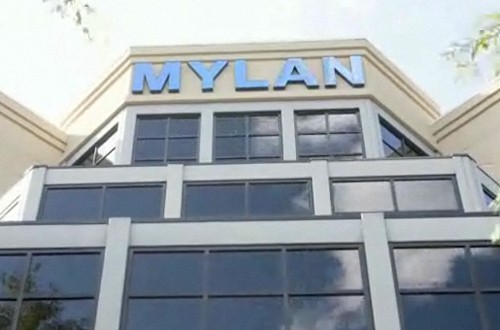
Mylan and Biocon have launched their biosimilar Herceptin (trastuzumab) under the brand name Ogivri, after Roche tried and failed to get an injunction on sales of biosimilars in the US.
At least four other biosimilar Herceptin products are due to reach the US market by the end of the year and into early 2020, which will expose around 50% of sales of Roche’s drug to competition.
Mylan/Biocon’s Herceptin biosimilar is the second to launch in the US after Amgen’s Kanjinti, which emerged onto the market at a 15% discount to Roche’s list price for the drug.
Although Mylan did not identify the list price of Ogivri, it said it will offer the drug through the Mylan Advocate programme, and that it will provide “greater affordability for enhanced patient access”.
Roche has already had its Herceptin sales dramatically decline in Europe, where it has seen 45% carved off sales in the first half of the year and total revenues from the drug dropping down 9% to $3.2bn.
MSD – known as Merck & Co in North America – was the first to launch a biosimilar of Herceptin in the EU, under the Ontruzant brand name.
Roche has particularly high exposure to biosimilar competition in the coming years, as its first-generation antibody products lose patent protections.
Alongside Herceptin, this includes Avastin (bevacizumab) and MabThera (rituximab) which are also under threat from new biosimilar launches.
To counteract the onslaught from these biosimilars, Roche has prepped filings for a fixed-dose combination of both Herceptin and its other antibody blockbuster Perjeta (pertuzumab), promising simpler dosing of the breast cancer drugs.
The subcutaneous formulation of the two HER2-targeting therapies demonstrated equal effectiveness to Herceptin and Perjeta, administered by intravenous (IV) infusion – the current route of administration – at achieving therapeutic levels in the blood when given alongside chemotherapy.
This raises the prospect of a therapy for HER2-positive breast cancer that can be administered as a single injection in just eight minutes, with follow-up does taking only five minutes.
Currently, Herceptin and Perjeta therapy requires a 150-minute infusion to provide a loading dose, followed by 60- to 150-minute maintenance doses.
As well as providing benefits for patients in terms of reduced clinic time, Roche is hoping the combination therapy could also provide some insulation for its HER2 franchise from discounted rivals encroaching onto the market.
Roche is also counting on its new-generation products to help counter the offset of cut-price biosimilar competition, such as multiple sclerosis therapy Ocrevus (ocrelizumab), PD-L1 Tecentriq (atezolizumab) and Hemlibra (emicizumab) for haemophilia.




